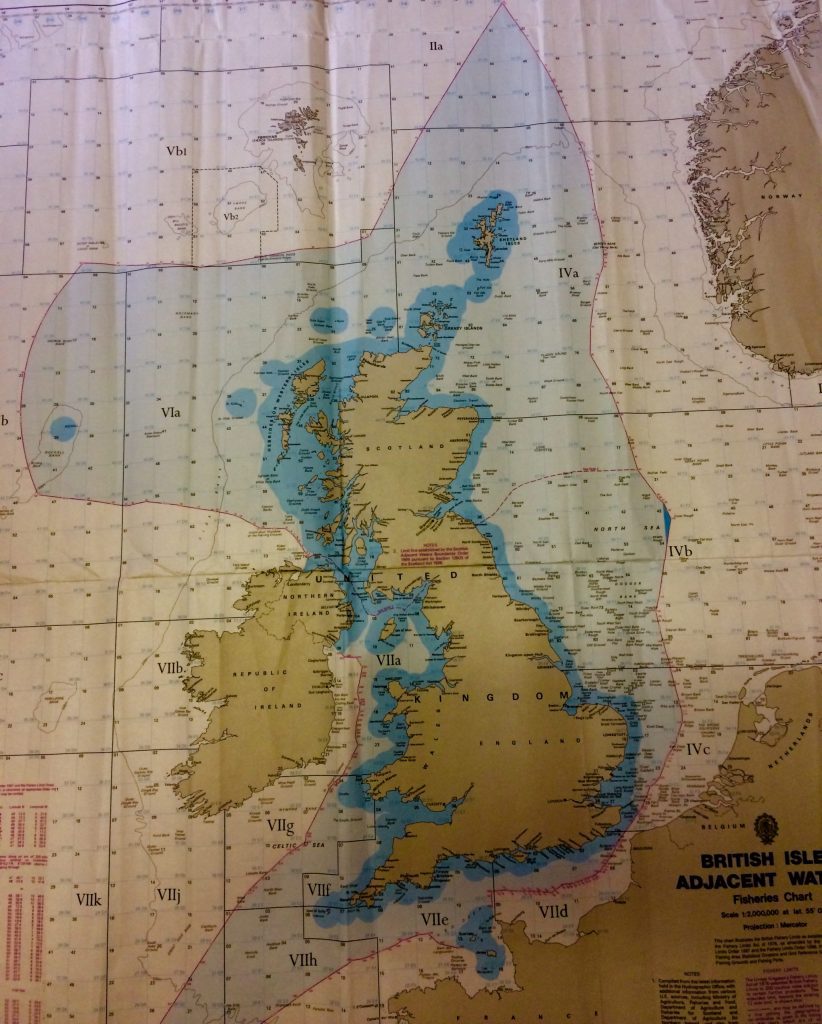The Common Fisheries Policy has been one of the least successful European policies. At its worst, the CFP became world-class exemplar of a glaring disconnect between regulator and regulated. At one time it was judged by the European Court of Auditors to be the single most unsuccessful European Policy, the cost of administration outstripping the value generated by landings.
UK Fisheries outside the Common Fisheries Policy
Raw Deal
The over-centralised, top-down, command and control, model of managing complex and diverse EU fisheries has been largely discredited in recent years. However, reform, in the shape of regionalisation and decentralisation of control, has been too little, and come more than two decades too late.
For British fishermen, in addition to this dysfunctionality, the CFP has delivered an additional insult to this ongoing injury. This was the deeply unfair way that the terms of access for other member state vessels to fish in UK waters was accepted by the British Government in 1972, to the UK’s great and ongoing disadvantage. This concession undermined the benefits that could reasonably be expected to arise from the application of a 200 mile exclusive economic zone, when that became the legal norm around the same time. The unpalatable fact is that, during the Common Market entry negotiations, fishing was considered expendable and sacrificed to secure other priorities considered more important. In the political manoeuvring the equal access principle was forced on the UK as one of the costs of EU membership; and was followed a decade later by national quota shares that in many cases bore little relation the resources actually caught in UK waters.
How else are we to explain that the UK’s share of cod in the English Channel amounts to 9%, whilst that of France is 84%? And other EU member states take up to 80% of their catch from UK waters?
Brexit
Whatever the other dimensions of Brexit will be, the referendum result on 23rd June provides a generational opportunity to reset the deal for British fishermen. We know the biological, legal and political realities must be respected. We fully recognise that more than 100 of the most important stocks that we fish are shared with other countries, including EU member states and Norway. We fully recognise that this means that sensible bilateral and trilateral arrangements will be required with other countries, including the EU to set sustainable harvest rates. We also recognise that a fully prosperous fishing sector requires cautious husbandry of resources and fisheries policies that deliver high yields, whilst minimising the environmental footprint.
What we cannot accept is that UK fishermen would be failed for a third time by its politicians.
What do fishermen want?
The fishermen of this country want a fair deal covering:
- Fair national quota shares, broadly reflecting the resources located in UK waters
- A 12 mile exclusive zone that would provide adequate protection for our inshore fleets
- Balanced and proportionate access arrangements
- The opportunity to manage our fisheries resources and fleets in an adaptive and responsive way, tailored to the contours of our fisheries
- EU/UK free trade in fisheries products
Regeneration of Coastal Communities
A fair deal for British fishermen, landing increased catches into the UK, with the expected shore-side multipliers, could make a significant contribution to the regeneration of our coastal communities.
A Post CFP-Fisheries Management System
Resetting the deal for our fishermen is fundamental but we know that the post CFP- fisheries management will have to be set on solid foundations if it is to provide the basis for a lasting prosperity. Management of our fisheries, once we have left the EU, could look something like this:
- Total Allowable Catches (TACs) will be set annually (or as part of long term plans) on the basis of scientific advice
- TACs for shared stocks will be set bilaterally (UK/EU), trilaterally UK/EU/Norway or Faroes) or through Coastal States agreements, depending on the sea area and stock
- Harvest Control Rules that deliver high yields (MSY) but in a flexible, pragmatic way that take account of the realities of mixed fisheries
- Quotas will be retained as the only practicable way of constraining fishing mortality and sharing resources between different countries and different groups of fishermen
- A landings obligation (discard ban) will apply but it will be applied in a pragmatic way, closer to the Norwegian model
- Technical rules governing gear and selectivity will be set by the UK authorities and will apply equally to all vessels fishing in UK waters; equally our vessels fishing in EU or Norwegian waters will observe their rules
- The UK’s quota shares will be subject to negotiation but the starting principle will be that the UK’s shares will broadly reflect the resources located within the UK area of jurisdiction
- Mutually agreed access arrangements will be agreed where these bring proportionate benefit to the UK
- Provision will continue to be made to maintain the important fishing opportunities that we hold in the waters of other countries
- The central role of producer organisations in delivering flexible and responsive quota management should be retained and developed
Negotiations
We have little clarity at this stage of what the negotiations after Article 50 is invoked, will involve. It is important, however, for all involved to understand what is at stake for the British fishing industry. Notwithstanding the many uncertainties ahead, there is an opportunity here to address a great injustice and put the UK fishing industry on the road to a new prosperity.

